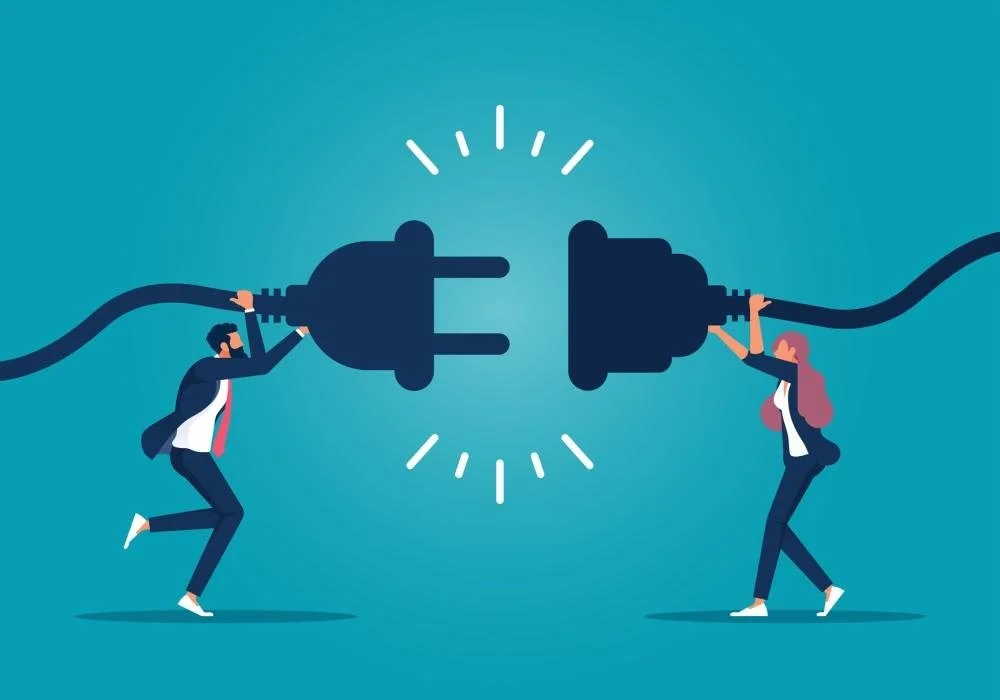Let’s Fix the Disconnect
by Holly Mandel
We get it — keeping teams connected and motivated right now is no easy task. And it's not just your office— Gallup's 2025 report says only 23% of employees feel engaged at work. No wonder things feel a little... off. That's why we created our improv-based sessions designed to get people talking, listening, laughing-and actually feeling like a team again. These aren't just fun (though they are), they're about rebuilding trust, boosting morale, and reminding people why they like working with each other in the first place.
The statistics speak loud and clear and are showing lack of connection is a real issue —
Disconnection in the workplace isn’t always loud—but it’s widespread. According to another Gallup poll, only 3 in 10 employees strongly agree that their opinions count at work. That’s more than just a morale issue. Teams where people feel heard have 27% lower turnover, 40% fewer safety incidents, and 12% higher productivity. When managers learn to truly listen and create space for contribution, the ripple effects are real and measurable.
Isolation at work is a growing issue—even in shared spaces. A Cigna study on workplace loneliness found that 58% of U.S. employees experience feelings of isolation, disconnection, or not having someone to talk to. These numbers remain high post-pandemic, suggesting the problem isn’t just remote work—it’s relational habits. Without intentional practices that build interpersonal connection, teams grow colder, quieter, and more withdrawn. Improv breaks that pattern fast, giving people a way to rebuild rapport, warmth, and mutual trust—often in a single session.
Workplace disconnection is more than a lack of communication—it’s a lack of human connection. A recent report by BetterUp found that employees who feel socially isolated at work are 2.6 times more likely to actively seek a new job. Loneliness doesn’t just happen to remote workers—it can happen in crowded offices when people don’t feel seen, valued, or part of something cohesive. And when that sense of belonging is missing, morale and performance suffer, no matter how strong the business strategy is.
Lack of team cohesion is one of the quietest—and most corrosive—threats to morale. A survey by Gallup revealed that only 2 in 10 employees strongly agree they have a “best friend” at work—an important marker Gallup uses to gauge emotional connection and engagement. People don’t need to be best friends, but they do need to feel bonded. When teams feel siloed or emotionally distant, trust doesn’t build. And without trust, initiative, risk-taking, and collaboration stall out.
Improv is not only a performance tool, it’s a TEAM-BUILDING tool. That’s because in order to be good at improv, everyone must be connected as one, cohesive team. Corporate improv (and improv in general) is built on a foundation of unity and trust. It takes a little time to build these bridges between each person to another — it takes time to make eye contact, listening without an agenda, and ‘yes, and’-ing one another natural and comfortable. These communication basics are a worthwhile investment of time because they become the building blocks of a connected, familiar team.
A recent Pfizer manager wrote us,
“Our session with you showed that inviting people for drinks after work was never going to get our team where we needed them to be. We just weren’t sure how to get there.
These two hours were perfect and your team did a bang-up job in leading everyone from a polite-but-separate way of working to a happy, connected group again.”
Whether your crew is in the office, remote, or some combo of both, we help bring back that spark-unifying groups into motivated teams is what improv is all about.

